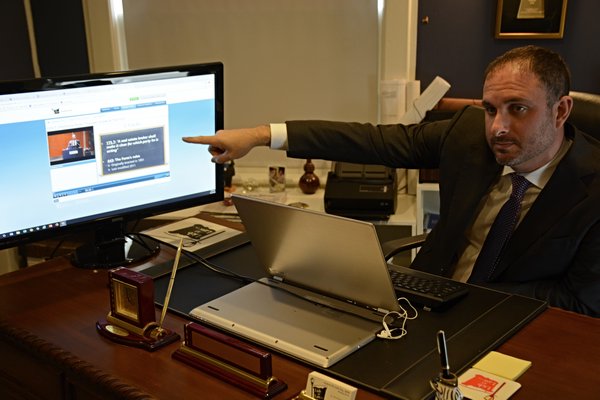
The New York State Department of State has announced the largest change to its real estate broker’s licensing curriculum in a decade.
“The course focus is now more on areas that the board felt were lacking for proper broker management and operation,” the department’s Dave Mossberg said during a June 11 meeting of the Department of State Real Estate Board.
There are new 16-hour courses devoted to agency law, license law and operating a real estate office. The material highlights how the “Law of Agency will enable the brokerage to function as a fiduciary entrepreneurship.” That is, how the law protects the public by requiring competent and trustworthy agents, and promotes business success. There is information about how to form a business plan and the benefits of ancillary service providers, including mortgage brokers and home inspectors.
Real estate brokers, though the course, are also taught disclosure standards when it comes to “first substantive contact” with clients and the effect on protecting commission rights, referring to licensed, employed and procuring cause. Liability, and the state’s Rules, Codes and Regulations are also topics. There are additional sections on what it means to be “ready, willing and able” as it pertains to a licensee earning a commission based on negotiations of contract parties.
Compass senior managing director Joseph De Sane, based in Bridgehampton, said brokers at real estate firms have historically been responsible for managing their own continuing education, including at Compass.
“Many elect to handle it in person, through courses, or online. While the changes may encourage firms to handle these efforts in-house moving forward, I suspect many will continue to go to whatever resource is most convenient and time efficient,” Mr. De Sane said. “I welcome any changes that better inform us as brokers and help make us better leaders in real estate.”
Dana Trotter, an associate broker and senior global real estate advisor at Sotheby’s International Realty, added that most of the new topics are familiar to experienced agents but some additional instruction would be helpful to the newer agents.
“Sotheby’s provides in-house training on virtually all of the topics that have been added to the Department of State curriculum. As far as the credits required for broker licensing and continuing education, Sotheby’s, like most companies, encourages its agents to take live courses offered locally by Department of State approved schools,” Ms. Trotter said. “It is not clear how these courses will help business, but having more agents who are better trained is certainly in the interest of buyers and sellers.”
Andrew Lieb, of the strategic legal partner firm Lieb at Law P.C. in Center Moriches, teaches real estate property law to brokers and would-be brokers through the Lieb School. Mr. Lieb said the curriculum update is welcomed, and much needed.
“Updating education curriculum is imperative to achieve the brokerage course’s stated objective of [requiring] ‘brokers to be lifelong learners and critical thinkers, always discovering new ideas and methods to foster the delivery of quality service to consumers,’” Mr. Lieb said in an email. “Unfortunately, most real estate education on the market is stale and only theoretical with no practical application. Lieb School was created with the mission to provide real life, applicable, education that will help make students money while minimizing their exposure to legal claims.”
The Lieb School offers both an online and in-person licensed real estate schooling, through 15 continuing education courses per year. A sister company, Lieb Compliance, offers eight courses per month tailored to compliance trainings for brokerage firms and other industries.
“In the age of online platforms, traditional real estate brokers must be local experts, who can leverage changes in their industry to make their clients money. The new brokerage curriculum, which has been in the works since 2015, will differentiate professionals from platforms as professional real estate brokers will now be forced to have additional New York specific license law knowledge that will set them apart from a scaled national platform which does not address the unique needs of New Yorkers,” Mr. Lieb said.
Mary Jo Moore, of the Department of State, said the update with coincide with the course renewal term.
“An email was sent to approved course providers on May 29, providing them with the new course curriculum. [The next day] the course providers were sent another email that provided a course outline and the number of exam questions that needed to be dedicated to each topic. It also provided the course providers with instructions for renewing their brokers course for this term,” she said at a Department of State Real Estate Board meeting.
The curriculum will be go into effect September 1.